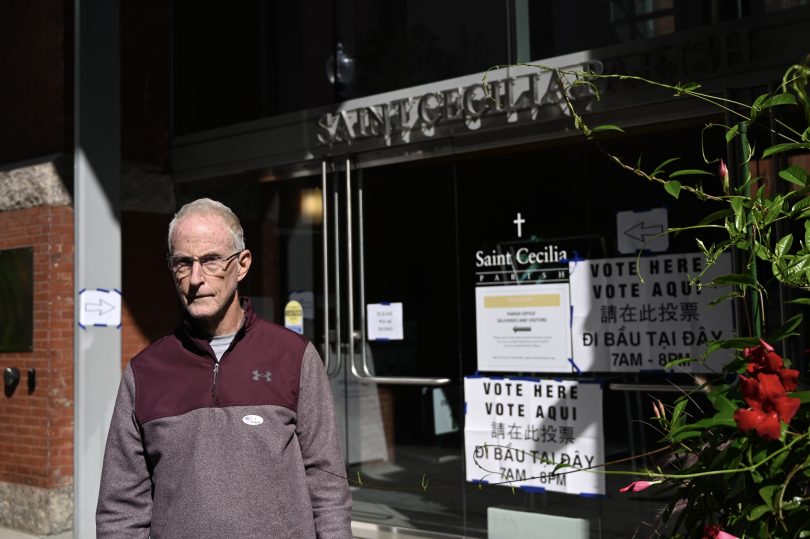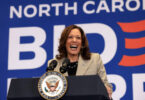By Xinran Wang
Boston University News Service
BOSTON – City voters rushed in and out of the polling stations throughout Tuesday, hoping their votes in the preliminary election will help create a better city for themselves and future generations.
Voters faced a ballot with the most diverse pool of candidates in the city’s history, where City Councilors Michelle Wu, Andrea Campbell and Annissa Essaibi George, Acting Mayor Kim Janey and former Chief of Economic Development John Barros have risen to the top of the eight-candidate field.
“We should look for them to have real experiences and understand the people that they are representing,” said Jennifer Nassour of Boston, 49, an American attorney and former chairwoman of the Massachusetts Republican Party.
Nassour said she resonates with Andrea Campbell’s background, as she also struggled with family hardships growing up before finding her path to education and success.
“I don’t think anyone else understands that you don’t have to get stuck in a weird situation, that you can rise above it, and I think she’s a wonderful role model,” Nassour said about Campbell.
Speaking after coming-and-going from their poll stations, some residents reflected on which candidates they thought are most likely to make concrete changes to education, housing, income, transportation, climate change and neighborhood development.
Courtney Valickus, of Jamaica Plain, 34, said she voted for Michelle Wu because of Wu’s plans to improve housing — making rent affordable and reclaiming abandoned buildings, among other things.
Working at the Wentworth Institute of Technology, Valickus said more students will be able to stay in the city after graduating if the rent drops.
“I lived in the city for 10 years, and can’t afford to keep renting or buy a house, despite wanting to stay here,” Valickus said.
Sean Heffernan, of Back Bay, 72, said he hopes Wu can guarantee a reasonable level of income for everyone, going beyond verbiage about caring for low income residents, and giving them $4,000 a year.
Among other voters who said they cast a ballot for Wu was Daiki Tsumagari, 21, a senior at Boston University studying history.
“Michelle represents where Boston needs to go in the near future,” Tsumagari said.
Tsumagari said he believes that Wu would pass a more aggressive budget plan than the current administration, with a focus on making public transportation in Boston more equitable, especially to minority communities.
“Letting certain neighborhoods decide who gets to pass through or not is inequitable for the city,” said Tsumagari.
Mark Sashihara, of Back Bay, 62, said he voted for John Barros because he believed he had the right experience for neighborhood development, such as serving as a top aide for Marty Walsh, the former mayor of Boston and now the U.S. secretary of labor in the Biden administration.
“I won’t be disappointed if one of the other ones becomes mayor,” said Sharon Germana of Mission Hill, 62, who voted for Andrea Campbell but liked the other candidates as well.





